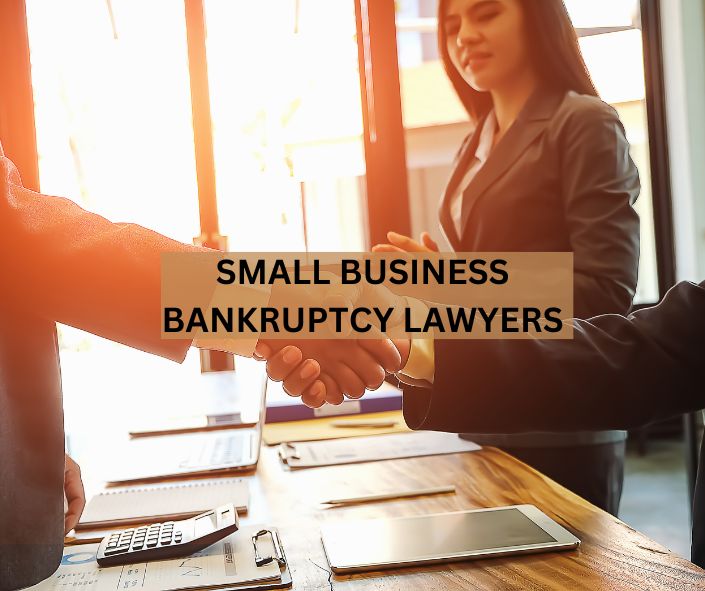A small business that is sinking in debt can file for Chapter 7, Chapter 13, or Chapter 11 bankruptcy to get out of that situation. You’ll need a small business bankruptcy lawyer. You have two options, you can either file a personal bankruptcy or a business bankruptcy. Personal bankruptcy is the right choice if your small business is either a sole proprietorship or a general partnership.
People who own such kinds of small businesses are personally responsible for the debts accrued by their businesses. You can file Chapter 7, 13, or 11 bankruptcy in this situation. But if your small business is structured as an LLC or a corporation, the business is liable for its debts, not you personally.
When a business is liable for its debts, you can only file Chapter 7 or Chapter 11.
What You Need To Know About Small Business Bankruptcy
 Whether or not it’s a good idea to file for bankruptcy to help a struggling business, depends on the circumstances. It is easier to make this choice if you understand the benefits that filing for bankruptcy can have for your business. The benefits you get from each type of bankruptcy are different.
Whether or not it’s a good idea to file for bankruptcy to help a struggling business, depends on the circumstances. It is easier to make this choice if you understand the benefits that filing for bankruptcy can have for your business. The benefits you get from each type of bankruptcy are different.
Sometimes you can be personally liable for the debts of a corporation or LLC as the owner. This is likely if you as the owner cosigned on a business loan, pledged their property as collateral, and in other situations. Another concerning fact is that sometimes you have to close your business after filing for bankruptcy, but this is not always the case even if you file Chapter 7.
Usually, a trustee can only close your business if the trustee can sell any business property or if you have liability insurance. If you are concerned about losing your business, Chapter 11 or Chapter 13 bankruptcy is a better option because they reorganize debt instead of liquidating your assets.
Chapter 11 is specifically better if you owe a significant amount of debt, which is why it is preferred by most small businesses. Your small business bankruptcy lawyer can help you review your situation and point you toward the right bankruptcy option.
What Is Chapter 7 Bankruptcy For Small Businesses?
Filing Chapter 7 bankruptcy results in a court appoints a trustee that sells or liquidates the assets of the small business. The amount from the sale is then distributed among the creditors. Immediately you file Chapter 7, the business ceases all business operations unless it is a rental property. If it’s a rental property, the trustee will continue collecting the rent and maintaining the property until the property is sold.
What Is A Chapter 11 Bankruptcy For Small Businesses?
Unlike Chapter 7, Chapter 11 reorganizes the debts of your small business. That means that after you file for Chapter 11, a plan is created for paying creditors over time. You can continue with business operations even after you file for bankruptcy.
What Is A Chapter 13 Bankruptcy for Small Businesses?
You can keep all your property when you file for Chapter 13 because it involves reorganizing your debt. While it is similar to Chapter 11, it is less expensive to file for Chapter 13.